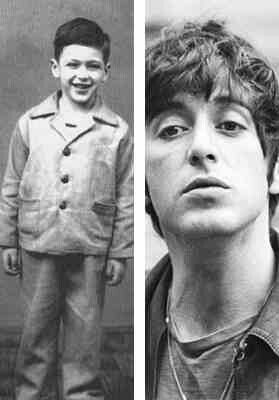Rose Gerard Pacino may not have the worldwide recognition of her famous son, but her life story reveals a woman whose struggles and sacrifices helped shape one of Hollywood’s most celebrated actors. Behind Al Pacino’s remarkable career stands the profound influence of a mother who faced tremendous challenges while raising her son in the Bronx during difficult times.
Early Life and Family Background
Rose Gerard Pacino was born on May 3, 1918, in New York City to Italian immigrant parents. Her father, Vincenzo Gerardi (later known as James Gerard), and her mother, Caterina “Kate” Suozzo, raised their daughter in the Bronx neighborhood of New York. Growing up during the Great Depression, Rose experienced firsthand the economic hardships that defined that era.
The daughter of immigrants, Rose’s early years were shaped by Italian-American culture and the struggles of a working-class family trying to establish themselves in America. These formative experiences would later influence how she raised her own son in similar circumstances.
Her upbringing in a traditional Italian household instilled values of family devotion and perseverance that would become essential during her later years as a single mother.
Marriage to Salvatore Pacino
In 1939, at around 21 years old, Rose married Salvatore Pacino, a man approximately three years her junior. Their union brought joy with the birth of their only child, Alfredo James “Al” Pacino, on April 25, 1940. The young family represented the American dream that many immigrant families hoped to achieve.
However, the marriage proved short-lived. Rose and Salvatore divorced in 1942 when Al was merely two years old. The separation created immediate challenges for Rose, who suddenly found herself a single mother during an era when such circumstances carried significant social and financial hardships.
Following the divorce, Rose made the practical decision to move back in with her parents near the Bronx Zoo, creating a multigenerational household that would provide young Al with extended family support.
Life as a Single Mother
As Business Broadsheet has explored in articles about influential parenting stories, the challenges Rose faced as a single mother in the 1940s were substantial. The post-war era offered limited economic opportunities for women, especially those with limited education and a child to support.
Rose worked diligently to provide for her son during these difficult years. The support of her parents proved invaluable, offering both practical help with childcare and emotional stability for young Al. Their home near the Bronx Zoo became the backdrop for Al’s formative years.
Despite financial limitations, Rose strove to give her son opportunities and experiences that might open doors for his future. Her dedication to Al’s wellbeing remained unwavering, even as she battled her own personal demons.
Personal Challenges and Struggles
Behind Rose’s devotion to her son lay significant personal struggles. She battled depression and various mental health issues throughout much of her adult life. Al Pacino himself has described his mother as “emotionally fragile,” indicating the psychological challenges she faced.
The mother-son relationship had its complications. Rose reportedly harbored reservations about Al’s acting aspirations, perhaps concerned about the financial instability and rejection inherent in such a career path. This created tension between them during Al’s teenage years when his passion for performing arts began to emerge.
Despite these conflicts, the bond between mother and son remained profound. Rose’s nickname for Al – “Sonny Boy” – carried such significance that decades later, he would choose it as the title for his 2024 memoir, demonstrating the enduring impact of their relationship.
Final Years and Untimely Death
Rose’s later years were spent in Mount Vernon, New York, where her struggles with mental health and addiction apparently intensified. The challenges she faced speak to the limited understanding and treatment options available for mental health issues during that era.
Tragically, Rose Gerard Pacino died on April 19, 1962, in Mount Vernon – just days before her 44th birthday. Her death, reportedly due to an accidental drug overdose, cut short her life before she could witness her son’s extraordinary rise to fame.
Al was only 22 years old when he lost his mother. The timing proved particularly poignant as his career had not yet taken off, meaning Rose never saw her son achieve the acclaim and success that would eventually make him a household name.
Lasting Influence on Al Pacino
Despite her absence during his rise to stardom, Rose’s influence on Al Pacino has been profound and lasting. The actor has frequently acknowledged the tremendous impact his mother had on shaping his character, values, and even his artistic sensibilities.
In interviews throughout his career, Pacino has expressed that everything he is today, he owes to his mother. Her strength, resilience, and sacrifices provided the foundation that allowed him to pursue his acting dreams, even when the path seemed impossible.
The complex emotional landscape of his childhood, influenced significantly by his mother’s mental health challenges, may have contributed to Pacino’s remarkable ability to portray characters with psychological depth and emotional complexity.
Legacy and Memory
Though Rose didn’t live to see her son receive his Academy Award or become one of the most respected actors in film history, her legacy lives on through him. The values she instilled – perseverance, passion, and authenticity – have been evident throughout Pacino’s illustrious career.
By naming his memoir “Sonny Boy,” Pacino has ensured that his mother’s memory continues to be honored. This tribute points to the enduring significance of their relationship and the ways her influence has remained with him throughout his life.
Rose Gerard Pacino’s story reminds us that behind many great individuals stand unsung heroes whose sacrifices and support make achievement possible. Her life, though cut tragically short, created ripples that continue to influence culture through her son’s artistic contributions.
The struggles Rose faced – single parenthood, mental health challenges, financial hardship – were faced with a determination that ultimately helped shape one of cinema’s most celebrated artists. In the final assessment, Rose’s greatest legacy may be the son who carries her spirit forward through his extraordinary life and work.

